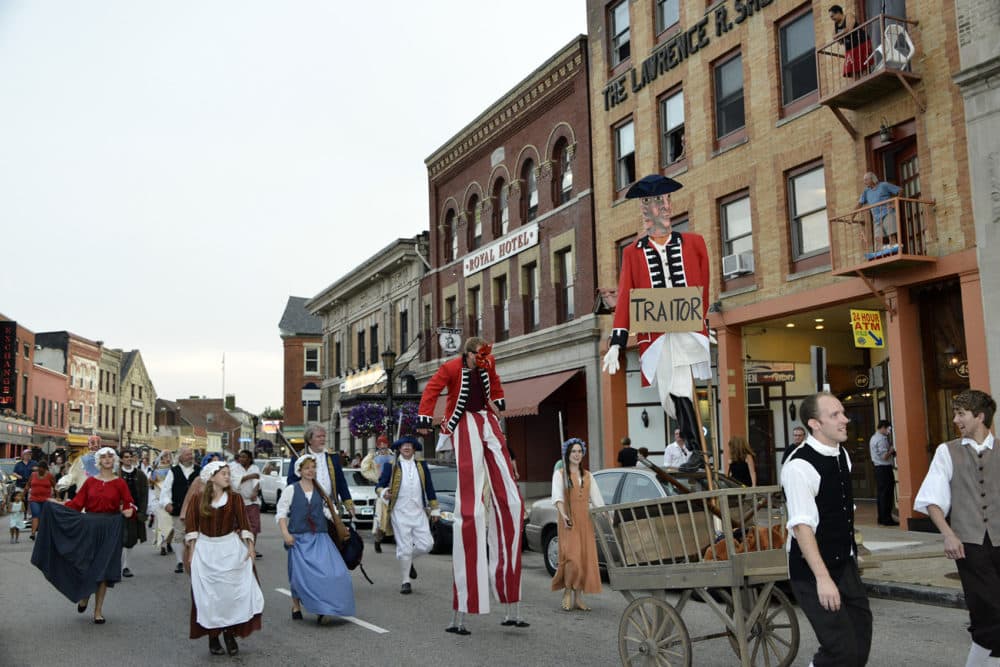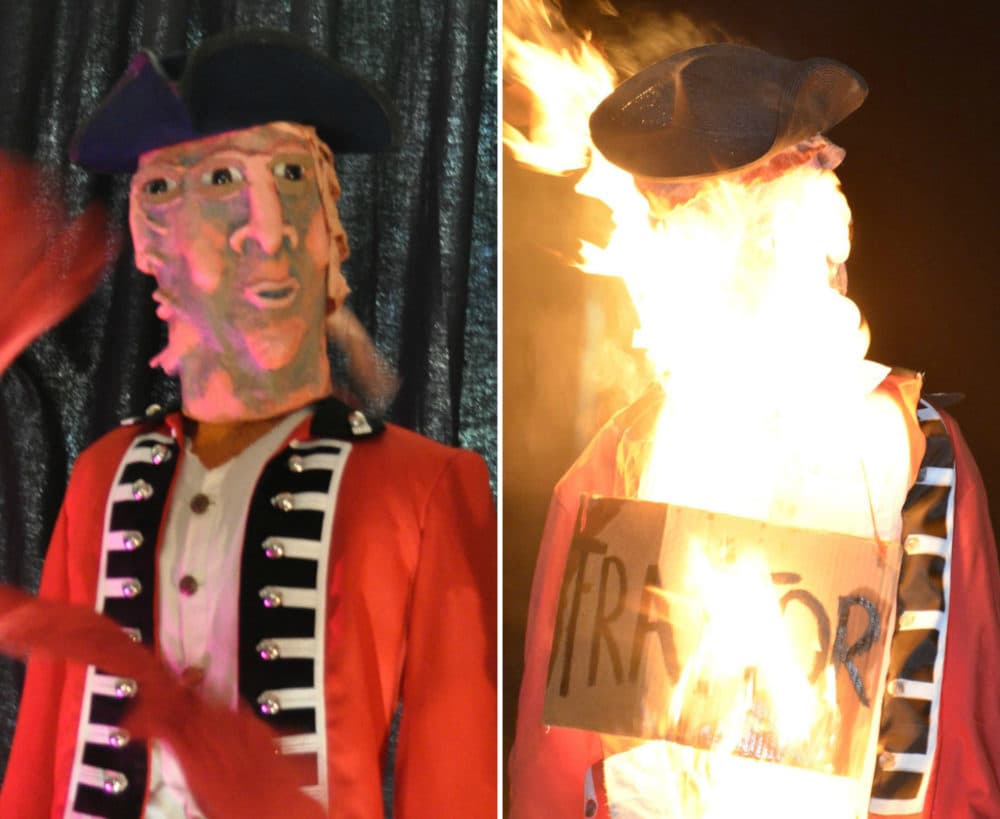Advertisement
Every Year, A Connecticut City Burns Benedict Arnold In Effigy

Treason is in the air in New London, Connecticut, on Friday. But it has nothing to do with events in Washington. Residents of the coastal Connecticut city will be burning an effigy of the country's best-known turncoat: Benedict Arnold. It was back in 1781 that the former Colonial officer ordered the burning of New London.
Here & Now's Peter O'Dowd talks with Derron Wood, executive artistic director for the Flock Theatre, which stages the yearly event.
Interview Highlights
On Benedict Arnold's ties to New London
"He initially was born in Norwich, which is basically one town to the north of New London. And when he turned coat, one of the first things the British did was send him back to New London, because he knew all the fortifications, he knew the codes and knew the weaknesses to burn it to the ground, because at that time, New London really was one of the hubs of our Navy, and a lot of privateers through the Shaws were raiding different British ships and they had a license to do that from John Hancock and the other members of the Continental Congress. Basically he was sent here to burn [the Shaw Mansion, a Navy headquarters], burn the ships and wreak revenge on the people of New London. And he did."
"They built the effigy with two faces because of the double nature of his crimes. He's traditionally followed by a devil, sometimes in one of his hands there's a mirror, because they said he was very vain and used to like to look at himself."
Derron Wood
On the genesis of burning Arnold in effigy
"The citizens of New London, my understanding, did it first in 1782, the year after Arnold burnt the town. What that did is that created this festival that caught on and spread throughout the newly formed Americas. In many ways, what our forefathers were wanting to do was still celebrate Guy Fawkes Day. But they couldn't, because they were no longer English, because we had won the war. ... Guy Fawkes, the Gunpowder Plot in England, who attempted to blow up Parliament ... still to this day they celebrate Bonfire Night or Guy Fawkes Day, which is the 5th of November. And that's what they still wanted to celebrate, but not being English, they couldn't. So they looked around for a convenient, unique American traitor, and they found one in our Norwich neighbor, Benedict Arnold."

On the Arnold effigy having two faces, and other traditions involved in the event
"They built the effigy with two faces because of the double nature of his crimes. He's traditionally followed by a devil, sometimes in one of his hands there's a mirror, because they said he was very vain and used to like to look at himself. And we also cut off the left leg of the effigy — which also was tradition — and they in the past would bury the left leg with high honors, because that was the leg that he was wounded in when he was fighting on our side. So they were honoring the good side of Arnold, and burning the bad. And we take our leg up to Norwich, his boyhood home, at a museum with the Leffingwell House. We give it to them and it's treated with high honors up there for the year, until we duplicate it again the following year."
On the timing of this year's festival, amid President Trump calling the anonymous author of a New York Times op-ed a traitor
"Our timing is actually based on the anniversary of the day, which is the 6th of September. So we always do it to the closest weekend. But I'm sure a lot of people are drawing parallels in many different directions. The case always is made that, had the British actually won the war, Benedict Arnold would be treated as an American hero.
"I think it's really interesting how, when you look at history — even modern history that's being made now — it's never just black and white. There's multiple shades of grey. There's multiple shades of whose opinion it is and from what angle and what direction. But I do think it's fascinating as we look at the word 'traitor' and how it's applied and what it means to a culture, to a society, especially to a government."
This article was originally published on September 07, 2018.
This segment aired on September 7, 2018.